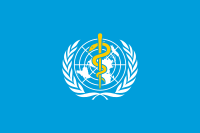
Photo from wikipedia
OBJECTIVE To explore healthcare consumers' experiences of healthcare service integration. METHODS This phenomenological study comprised three focus groups of 13 participants who were purposively invited to span three broad generations:… Click to show full abstract
OBJECTIVE To explore healthcare consumers' experiences of healthcare service integration. METHODS This phenomenological study comprised three focus groups of 13 participants who were purposively invited to span three broad generations: young adults, middle-aged adults and seniors. Transcripts of focus group recordings were analysed thematically. RESULTS Key themes were that: (i) healthcare consumers manage their own healthcare, (ii) healthcare consumers value open, non-judgmental communication with healthcare providers, and (iii) healthcare consumers want flexibility in healthcare services. CONCLUSIONS Healthcare consumers integrated their own healthcare, including complementary and alternative medicine (CAM) and conventional medicine, by researching practitioners and services and by engaging in service and product rating strategies. They moulded available health services around their needs. Without the support of healthcare providers, healthcare integration, knowledge exchange and risk management are limited. A system of healthcare integration that omits CAM fails to meet community needs, policy aims for greater efficiency, and duty of care to healthcare consumers.
Journal Title: Complementary therapies in clinical practice
Year Published: 2018
Link to full text (if available)
Share on Social Media: Sign Up to like & get
recommendations!